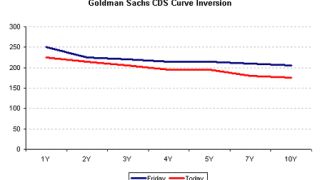Derivs - Regulation
-
David Ruder, former Securities and Exchange Commission chairman and a key panelist on the newly formed SEC/Commodity Futures Trading Commission committee on harmonizing emerging regulations, wants to see more transparency, but without forcing the derivatives business offshore.
-
A recent decision by a Hong Kong court to dismiss a challenge on regulatory decision making relating to banks repurchasing Lehman Brothers’ minibonds in 2009 has frustrated lawyers who were keen to see more clarity on the matter.
-
Sens. Tom Harkin (D-IA) and Maria Cantwell (D-Wash.) introduced a little-noticed amendment last Tuesday on the Senate floor that would tighten the screws on Wall Street derivatives dealers by changing the recently amended definition of a swap execution facility back to its original, stricter form.
-
Members of the European Parliament’s Economic and Monetary Affairs Committee voted on Monday to create a European Securities and Markets Association, which will be given powers to approve which over-the-counter derivatives are considered standardized enough for central clearing.
-
The Federal Deposit Insurance Corp. voted Tuesday to pass its Safe Harbor proposal. The vote was in two parts, with the first motion passing unanimously and the second passing by a narrower margin of 3 to 2. Now the proposed rule will be published in the Federal Register, and then a 45-day comment period on the Safe Harbor proposal will begin.
-
The Bank for International Settlements is advising trade repositories to report data from participants in real-time when possible, with a minimum lag of one business day.
-
The Bank for International Settlements today recommended over-the-counter derivatives CCPs regularly check their procedures for coping with the failure of a member firm.
-
Banks have stepped up their issuance of reverse convertibles linked to the stocks of other financial institutions.
-
The front-end of the credit default swap spread curve on Goldman Sachs became inverted late last week for the first time since mid-2009, meaning the cost of buying protection on the firm became more expensive over the shorter term than the long term. Traders are attributing the move to jump-to-default risk—essentially the fear that negative headlines and regulatory pressure on the firm could ultimately cause it to fail.
-
E.U. member states may have to introduce taxes on financial transactions such as derivatives to meet the requirements for Europe’s newly announced EUR750 billion stability fund without changing domestic financial policy, some strategists say.
-
Five-year credit default swaps on Greece pulled in this morning by 375 basis points, after the E.U. announced a EUR750 billion (USD969 billion) lifeline and the European Central Bank pledged to purchase European government bonds in an attempt to stem contagion in the region.
-
Safe harbor provisions that derivatives have under bankruptcy law are under threat via an amendment to the U.S. Senate Financial Reform Bill proposed two weeks ago. Industry players say that if enacted, the amendment would destabilize the markets by ending close-out netting.


